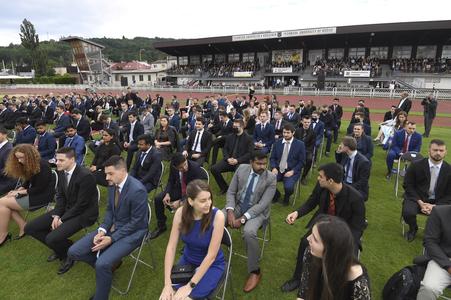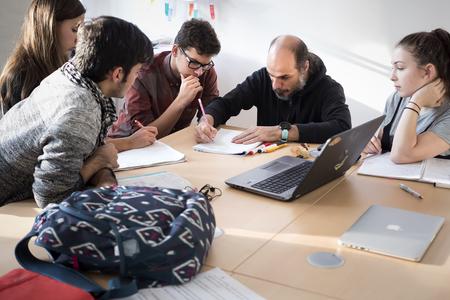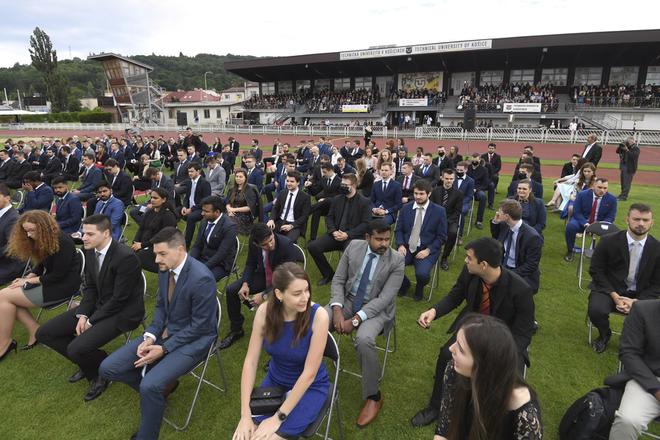In March 2021, The Slovak Spectator published its Business Focus on education. Here is your overview of stories from the focus issue:
Online education cannot fully replace in-person teaching at universities
Universities are the natural hubs for scholars, scientists, developers and promising students. Thus it is no surprise that they have coped with the challenges of online and remote learning, to which they were forced to switch, with no major problems. Universities have gone even further and joined the fight against the novel coronavirus. Their teachers and students have participated in various pandemic-related research projects, as well as the design and production of protective equipment, including face shields and even an emergency ventilator.
“Each crisis is an opportunity,” Jozef Ristvej, vicerector for international relations and marketing at Žilina University (UNIZA), told The Slovak Spectator. “The importance of scientists and researchers, whose expertise and results fundamentally contribute to coping with the coronavirus crisis, are even more apparent now.”

Digitalisation will require new skills. Universities should adapt
Graduates from IT, economics and mechanical engineering have been some of the most wanted job applicants for years, and it does not appear that the coronavirus is about to change that. Fresh graduates from most other fields are facing stiffer competition when applying for jobs. They are competing with a number of people with more work experience who have lost their jobs due to the coronavirus crisis and they are struggling to impress their potential employers with the skill sets they receive from school, some observers point out.
“The university degree continues to lose its glamour for our labour market,” said Nikola Richterová, spokesperson for the Profesia recruitment company, which runs the largest job portal in Slovakia.

The number of university graduates far exceeds market needs
University graduates often respond to job offers that require only secondary school education rather than offers actually demanding a university degree. One of the reasons may be that there are not many jobs for university graduates on the Slovak labour market, points out results from a recent analysis of the Profesia.sk job website.

Language learning in the Covid era: school selection no longer location-bound
The pandemic has not diminished the interest or need of people in Slovakia in learning foreign languages - quite the opposite. Some have been using the time in lockdown to improve their language skills.
The pandemic and the accompanying lockdowns have changed the way people learn foreign languages.
Language schools have switched from traditional classroom teaching to online. They plan to continue this form of teaching even after the pandemic is over and people gather for group activities again.

New homeschooling law gives parents more choice
In the last year, hundreds of thousands of children across Slovakia have spent no more than a few weeks at school as the Covid 19 pandemic has kept them out of classrooms. But for hundreds of young kids, there will have been no change to their daily learning.
Homeschooling at the first level of primary school (from ages 6 to 10) has been allowed in Slovakia since 2008 and, according to official figures, there are 613 primary school children being homeschooled during the current academic year.
However, a recent law change means that homeschooling will also be allowed at the secondary level of primary school (between 10-14) from September 1 this year - a move welcomed by many parents whose children are already homeschooled.

International school can help open the doors to the world
Although the annual fees for studying at private international secondary schools reach thousands of euros, many people in Slovakia are willing to pay the price for a different education than what their children would receive at public schools.
One of the perceived advantages of these schools is that they are good preparation for universities and colleges abroad. This is particularly true for those that belong to an international network. Another reason why some Slovaks opt for international schools is that their children are exposed to an international environment.




 The Technical University of Košice held its graduation ceremony at an untraditional place - a stadium. (source: TASR)
The Technical University of Košice held its graduation ceremony at an untraditional place - a stadium. (source: TASR)